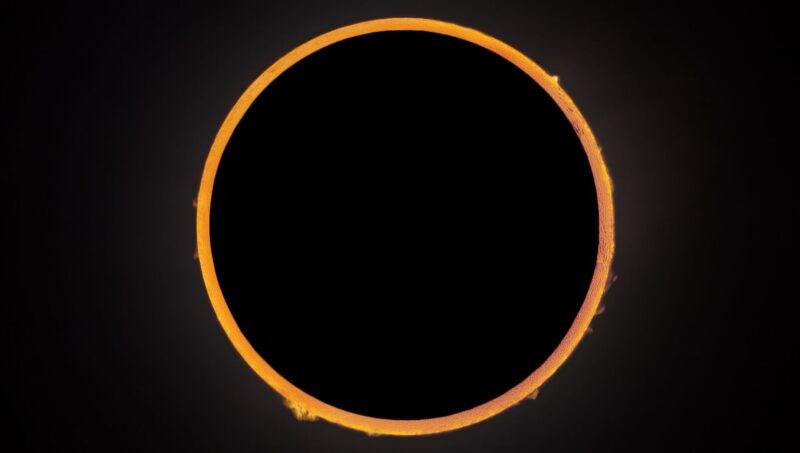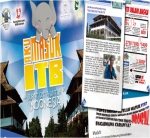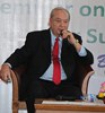BtSM 2013: Building Scientific Mind by Discussion and Practice
By Ahmad Furqan Hala
Editor Ahmad Furqan Hala
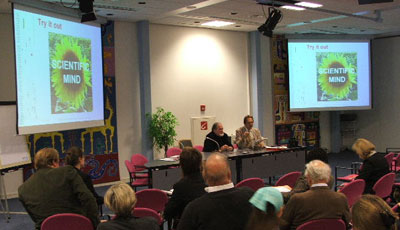
 BANDUNG, itb.ac.id - ITB collaborated with Learning Development Institute, United Nations Educational, Scientific, and Cultural Organization (UNESCO), Universe Awareness (Unawe), and Fondacion Cultura de Paz held an international colloquium titled Building the Scientific Mind 2013 (BtSM 2013). This international colloquium was held at Bosscha Observatory on Monday-Friday (27-31/05/13). This colloquium was participated by entrants from various countries like America, India, Egypt, Netherlands, Ireland, South Africa, and more countries. This year's main theme of BtSM 2013 was "Science and Technology in the Service of Beauty and Harmony".
BANDUNG, itb.ac.id - ITB collaborated with Learning Development Institute, United Nations Educational, Scientific, and Cultural Organization (UNESCO), Universe Awareness (Unawe), and Fondacion Cultura de Paz held an international colloquium titled Building the Scientific Mind 2013 (BtSM 2013). This international colloquium was held at Bosscha Observatory on Monday-Friday (27-31/05/13). This colloquium was participated by entrants from various countries like America, India, Egypt, Netherlands, Ireland, South Africa, and more countries. This year's main theme of BtSM 2013 was "Science and Technology in the Service of Beauty and Harmony".
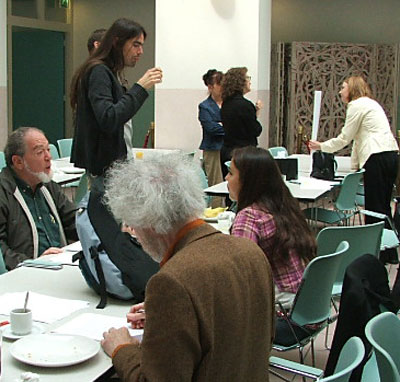 BtSM is a biannual event, where its first colloquium in 2005 was held in Den Haag, Netherlands. This year's colloquium is the fifth BtSM since it was held first in 2005. In 2007, BtSM was held in Vancouver, Canada. As in 2009 and 2011, BtSM was held in Cairo, Egypt, and Stellenbosch, South Africa. For 2013, BtSM was held in Indonesia, for the purpose there would be more countries from South East Asia and southern hemisphere were willing to participate.
BtSM is a biannual event, where its first colloquium in 2005 was held in Den Haag, Netherlands. This year's colloquium is the fifth BtSM since it was held first in 2005. In 2007, BtSM was held in Vancouver, Canada. As in 2009 and 2011, BtSM was held in Cairo, Egypt, and Stellenbosch, South Africa. For 2013, BtSM was held in Indonesia, for the purpose there would be more countries from South East Asia and southern hemisphere were willing to participate.
As suggested in its name, Building the Scientific Mind intends to gather communities from various disciplines to represent sciences, arts, and humanities. The topics which presented in this colloquium were also related with local knowledge, failure in formal education and its solutions, science philosophy and history, pedagogical approach in teaching, teacher's education and urban community development, health and nutrition, esthetics, and other various topics. Beside presentation, this colloquium was also held a group discussion related to global issues and final evaluation of the colloquium over all. In the daily times, participants of this colloquium were also given chances to socialize and discuss with one another. There were also some sessions where the participants were asked to join scientific yet fun activities such as making water rockets and the sun prototype.
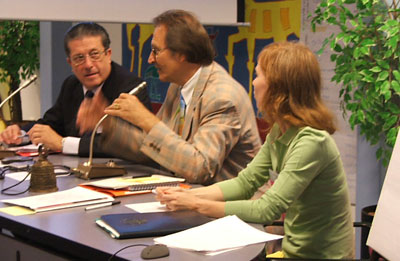 One of the keynote speakers was Vidula Mhaiskar from India. In his lecture, Vidula appointed a theme titled science by activities. Vidula explained that to understand nature behavior deeply, learning can be done by seeing, touching, listening, feeling, smelling, or in other words choosing, compiling and constructing those raw information together. Learning can be done by various methods and contents which are easily found in daily life. Learning experiences by daily activites sometimes are more valuable learning process with less cost than learning process in classroom or standard laboratories.
One of the keynote speakers was Vidula Mhaiskar from India. In his lecture, Vidula appointed a theme titled science by activities. Vidula explained that to understand nature behavior deeply, learning can be done by seeing, touching, listening, feeling, smelling, or in other words choosing, compiling and constructing those raw information together. Learning can be done by various methods and contents which are easily found in daily life. Learning experiences by daily activites sometimes are more valuable learning process with less cost than learning process in classroom or standard laboratories.

.jpg)
.jpg)

